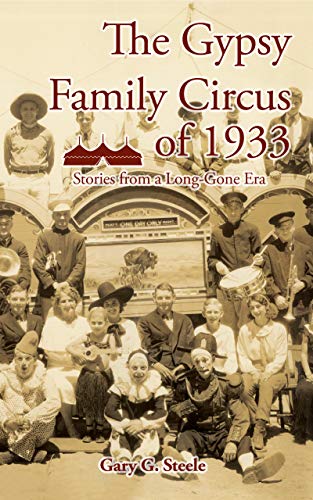
Welcome to a world of sneaky elephants and high jumping horses, of trick ropers, escaped ostriches, and Indian dancers. There is a grandmother who tells fortunes and a grandson who rides Roman style. But what goes on behind the scenes is even more fascinating. Brewer Brothers Circus is owned and op...
Welcome to a world of sneaky elephants and high jumping horses, of trick ropers, escaped ostriches, and Indian dancers. There is a grandmother who tells fortunes and a grandson who rides Roman style. But what goes on behind the scenes is even more fascinating. Brewer Brothers Circus is owned and operated by Gypsies, ethnic Gypsies, their own tribe of people who privately speak a strange dialect. But they can never risk prejudice by admitting their heritage. They and their children are key performers on the show, and seventy people from all over the world and almost as many animals depend on them. Getting over bad roads to do two shows a day with a smile is just a norm.
It is the time of the Great Depression, that sad period in American history. Unemployment tops twenty-five percent. Lines of hungry hobos wait at soup kitchens. People who have jobs gladly accept low pay, extra hours, and missed paydays, just trying to scrape by. They crave escape from their dreary lives. They shell out their nickels and dimes to see a circus full of wonder and surprise. It’s a once-a-year opportunity.
Every day a new town brings new hopes and challenges, maybe with good cops and maybe with bad cops. The Brewer family knows how to turn bad luck into a publicity stunt and how to negotiate tricky border crossings so that the show can go on. The family is the key to success and survival, first the Gypsy family and then the larger family of show folks they have hired. They are all trying to stick together in a world falling apart.
The author weaves together stories of his own family and ancestors, stories heard in his childhood around a fire when it was way past bedtime. The product himself of a Gypsy heritage and a circus childhood, he takes the reader back to the decade before he was born, the Depression years, when the stories were the best, when it sometimes seemed hopeless, when a relentless eye on opportunity was the order of the day. He interprets these stories for people who aren’t Gypsies and who never put up a circus bigtop. It will soon be a century since this world was real, but the people must never be forgotten. The stories must never die.

